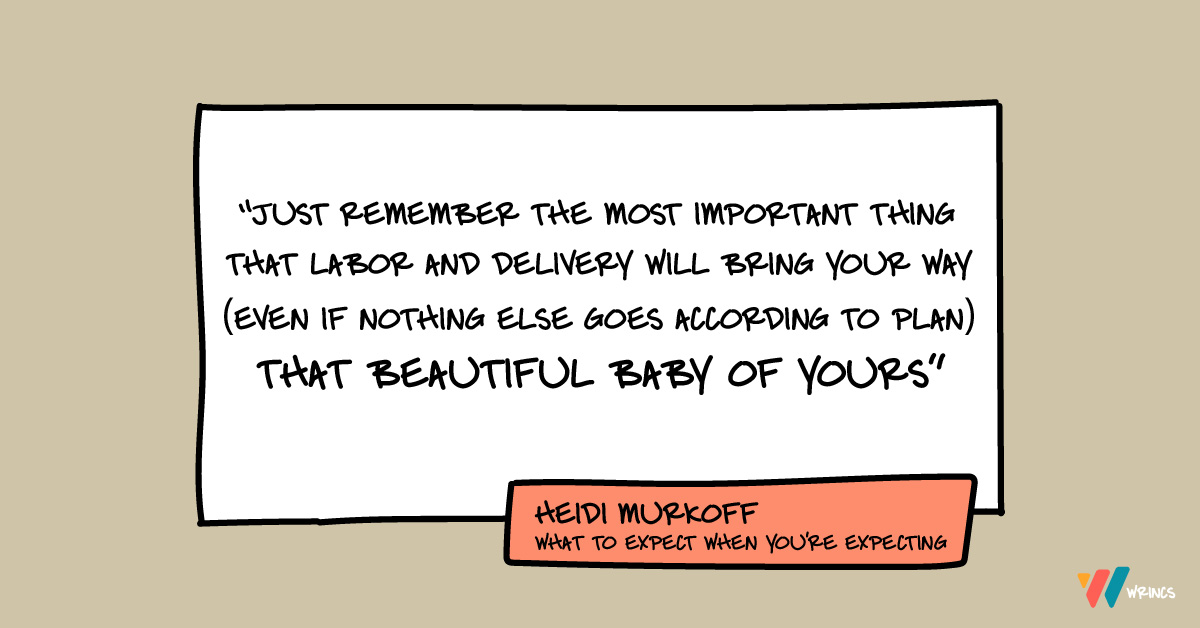Reading this book is like a rite of passage for first-time parents. So, I read it and wrote a What To Expect When You’re Expecting by Heidi Murkoff Review.
Minimal Effective Recommendation
This could be a good reference book if you can overlook some major problems. If you’re going to read 10 pregnancy books, it may be worth including. There are plenty of helpful sections, but the deficiencies make it a minefield and likely only a net positive for the most forgiving of readers.
Full Review of What To Expect When You’re Expecting by Heidi Murkoff
Overview
Originally published in 1969 and written by Heidi Murkoff, Arlene Eisenberg and Sandee Hathaway, What To Expect When You’re Expecting has been a massive global success. the book consistently tops The New York Times Best Seller list in the paperback advice category, is one of USA Today’s “25 Most Influential Books” of the past 25 years and has been described as “the bible of American pregnancy”. As of 2008, over 14.5 million copies were in print. According to USA Today, 93 per cent of all expectant mothers who read a pregnancy guide read What to Expect When You’re Expecting. In 2012, What to Expect When You’re Expecting was adapted into a film released by Lionsgate.
The most recent, 5th edition was released in 2017. This new version was also written by Sharon Mazel and includes updates relating to:
- dads, partners and single moms
- eating and exercise
- genetic and prenatal testing
- labour and delivery options
- coping with loss
It’s available as:
Synopsis
The book presents advice in a question-and-answer format. It proceeds chronologically from the time a woman first begins to suspect pregnancy, through each of the nine months (with one chapter devoted to each), and into the postpartum period. The beginning of each chapter succinctly lists common physical and emotional changes and symptoms a woman may be experiencing and gives information on what a woman can expect when visiting her doctor or midwife during checkups. Also included early in each chapter is a section entitled “A Look Inside” which displays pictures of the changing female anatomy and the growing embryo then fetus. Additional information in sections titled “What You May Be Concerned About” and “What It’s Important to Know” is designed to address a wide range of concerns, problems and life trends.
Each edition includes substantial nutrition information discussing caloric intake, maintaining balanced meals and provides sample recipes. Recent editions include a complete nutrition plan.
The book’s appendix lists additional sources of information and resources including government organizations, associations and foundations.
A Few Big Positives
Gathering the information included in this book must have been a massive undertaking. Heidi Murkoff and the other contributors deserve credit for that alone. There are so many topics to cover for expecting parents and not many are missed here.
Some will be of massive help to people. Highlights include When To Call the Doctor and Baby Blues & Postpartum Depression.
The week-by-week structure is mostly great (even if the book doesn’t always stick to it).
If you can somehow selectively adopt the credible advice and handle the endless list of warnings, this could be a good book for you.
What To Expect When You’re Expecting Is an Unreliable Source of Information
Despite being first published before man first landed on the moon, the author clearly suffers from one of the most common problems people struggle with today. The author drowned in a sea of information and couldn’t sort the research into levels of reliability.
Her repeating of the phrase “research shows” highlights this issue throughout the book. Some of the advice (and it is stated as advice) seems too alarmist for what I want from a pregnancy resource. Murkoff regularly references research. But when I looked up some of the topics linked to these statements, the studies weren’t always substantial or conclusive. Some were speculative at best. I don’t want that kind of information presented in the same way as clear, credible, large-sample-size-study-based medical advice.
Heidi Murkoff is unable to filter the noise from a world riddled with irrelevant, inconclusive studies and misinformation.
A Very Specific Demographic
This book is written for a couple with a stereotypical dynamic. This includes:
- A male-female married couple
- The woman is a little sensitive and does most of the housework
- The man is less emotionally available and loves sex
There are some minor exceptions, but if you aren’t a traditional expecting couple, you may feel left out. The ever-present assumptions are frustrating and disappointing when the most recent edition was written in 2017.
A Lack of Counterarguments
The author clearly feels strongly about some of her recommendations. Because of this, there are times when her exploration of other options is minimal or non-existent.
The best example of this is with breastfeeding. We are expecting our first child (at the time of writing) and we have decided we want to breast feed. Murkoff presents the information well and covers many of the reasons we made our decision. She must, however, be aware that there are other lifestyle and routine-based considerations that make it a tougher choice for some parents.
An author is, of course, entitled to have a clear opinion and present it. But I would expect, especially with something like pregnancy, for the options to be explained in a more balanced way.
Final Thought
The catchy title and marketing have driven the extraordinary success of What To Expect. It may be the best-known pregnancy book and they’ve done fantastically well to grow this into an app and community that help pregnant people all the time. But the book which started it all doesn’t live up to the hype.
The 6th edition could fix some of the problems I’ve found, but I don’t like the writing style anyway. In the end, though, it’s a pregnancy book. If it helps you, don’t worry about what I, or anyone else, thinks.
Rating
5 out of 10.
Next Pregnancy Post: Does The Nursery Need Blackout Blinds?
Previous Pregnancy Post: What To Do About Congestion In Pregnancy
First Pregnancy Post: I’m Pregnant. Now What?

